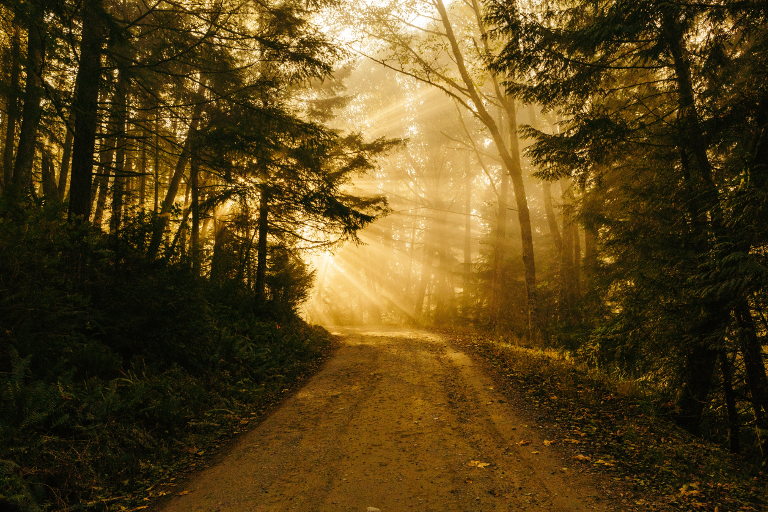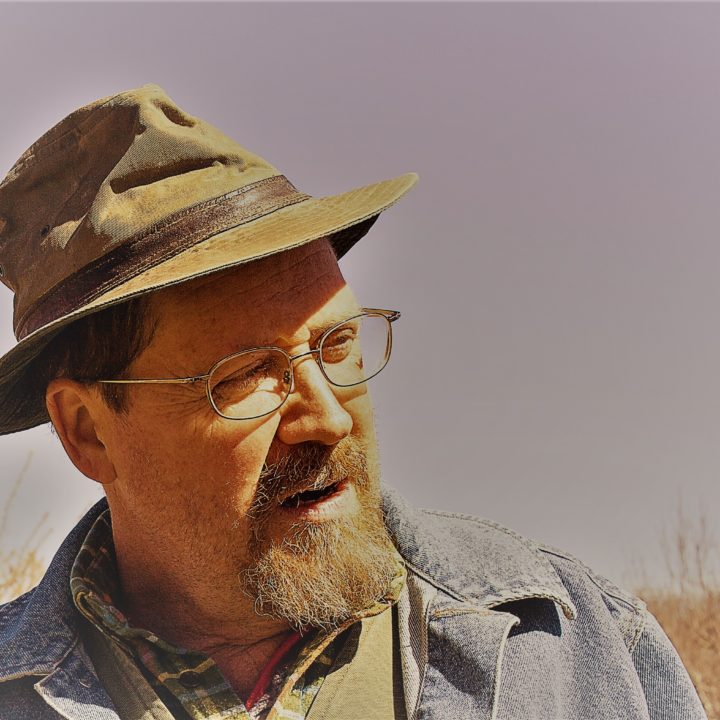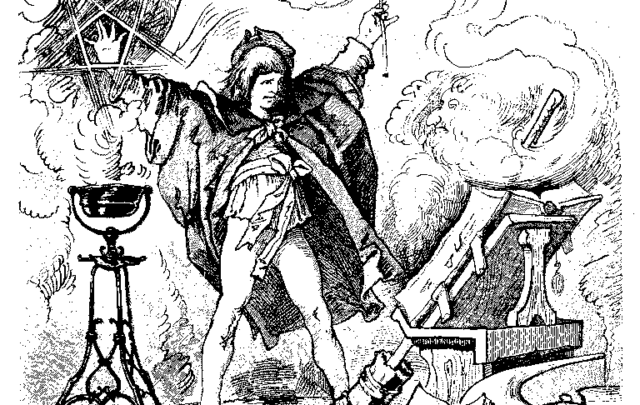The first bolt of lightning illuminated my office. It was followed by two more, all within a minute and all accompanied by a knee-trembling boom. Whoa! Those sounded like they hit the house or barn, I thought, diving involuntarily to the floor in a duck and cover. In doing so, I caught a glimpse of our dog Max as a vague streak by the window in the sheeting rain. An imposing 90-pounder, he had never shown any fear of storms. This one, it was to become apparent, was the deal-breaker.
It wasn’t until some hours later, while winding down over our evening coffee, that we noticed he was gone. We shouted his name, checked under the deck behind the house, examined gates to see if he’d gotten hung up trying to squeeze through. I checked the hay barn to ensure he wasn’t wedged in behind bales. Because an animal in a panic will do these things, trust me. But he wasn’t to be found.
A long, anxious afternoon of looking bled over into an evening. As more storms rumbled through the valley, we broadened the search. We drove the main roads and the back roads, calling. We inserted a flyer into nearby mailboxes. Cindy also posted Max’s picture on Facebook. Thankfully, social media came to the rescue: Within minutes, it yielded a sighting a mile to the north. A flurry of eyewitness reports followed, in an area now centered on the junction of Johnson Valley and Sweetwater roads. Upon seeing the post, some of our neighbors took it upon themselves to venture out and search. Yet still no Max.
This turnout by neighbors, at the bidding of social media, made me uncomfortable. I had decided only a few days earlier to delete my Facebook account. Now, almost as if it had read my thoughts, it was showing a real-time value. I hadn’t quite pulled the plug yet, still weighing the pros and cons. Meanwhile, Facebook friends nearby were pitching in to search for a missing pet, knocking on doors, calling each other, calling us. One of them, while searching up and down Possum Trot, said she was stopped by an unfamiliar woman driving from the opposite direction who asked, “Has he been found yet?” All of this as night fell and the bands of rain continued.
You may have heard the old joke about the man who goes to hell. The devil gives him the choice of spending eternity in one of three rooms. In the first, the lost souls are being roasted on a spit over a flame. In the second, they are being flayed alive. In the third, everyone is standing knee deep in shit drinking coffee. “I’ll take this one,” the man says. His wish granted, he enters the room and the door shuts behind him. Just then, a demon guard comes in with a whip and says, “Coffee break’s over. Back on your heads.” That is Facebook in a nutshell: you endure a load of crap and punishment to get to anything of value.
I first joined Facebook that summer before my older sister, Cynthia, passed away. It was a convenient way to connect with family and friends. Once on board, I found that, like with the carefully crafted letter or email I sent to friends, choosing just the right words or image was highly satisfying. And, there was what initially seemed to be an added benefit: instant connection. I came to expect, look forward to, and sit waiting for feedback in real time.
But the upsides were also the downsides. My lifelong habit of writing letters dramatically declined. With a letter sent by postal service or even email, I expected a reply typically within a few weeks. Because there was no rush, I was free to move on with my minute-to-minute, day-to-day pursuits. Once plugged in to Facebook, I began to fear missing out on responses and new activity, and I found myself often checking in. Beyond the increase in frequency spent online, the quality of my communications also changed. Within a very short time, participating in social media had rewired and then replaced my traditional structures of written and verbal communication, reconfiguring them into pictures on speed. I had become a member of a pictograph society, yet I missed, greatly, those older forms of communication.
Early on, I found it difficult to see this “social” medium as the business model that it was designed to be. Sharing is such an innocent activity — a friend or family member’s wedding, birth of a child, loss of a parent had always before seemed independent of any outside influences. But quietly, behind the scenes, those algorithms were sorting, accumulating … controlling.
It would be rude to blame social media alone for the distracted mind and culture of our modern condition. That tragedy goes further back and extends further out. Like pulling on the threads of a sweater you wear on a cold winter’s day, you end up naked and shivering before you find the starting point.
Indeed, the whole digital landscape has changed us all with its fragmentation and distractions. Once I joined the new world, I soon realized that friends and family no longer replied to emails or took phone calls. Responses to letters became perfunctory or nonexistent. “Haha!” and “LOL” were now default responses to missives. And I found that I was doing the same. The old communi(ty)cation landscape had been reduced to PMs and texts, and it happened so quickly, it seemed always to have been that way.
Since this is a blog whose aim is to speak of community and connectedness, albeit from a very imperfect practitioner, here are my areas of concern with the rise of social media, Facebook in particular: It is not some commons of a communal resource. It is a global business posing as community forum. It offers, in return for gathering data points about every aspect of our lives, a Hollywood movie-set façade intended to mimic real interactions. For any value gained, there is an even higher cost, that of relinquishing the possibility of enlarging a deeper understanding of our neighbors, friends, family, and selves. It further erodes our commons as a species.
And no, I don’t share in the latest outrage over the Russians’ or others’ use of Facebook to subvert an election. The very nature of the medium is subversion. Its primary goal is to get us to surrender eyeballs and information, commodifying the minutiae of our lives as opportunities to sell them back to us, repackaged. If our citizenry has grown so feeble of intellect that it is willing to trade in for infantile memes its duties and rights, then so be it.
For me, Facebook ended up providing the opposite of what I had hoped to achieve by living on the land. My goal was to learn much while seeing little; Facebook allowed me to see much while learning little. The conclusion I finally arrived at was that I’d rather lose all the Maxes in my life than surrender the very small chance of holding on to what remains of the old ways — that fractured (yet genuine) foundation, where a more hopeful edifice of social interaction, personal and direct, might reemerge.
So much has been written and discussed on this topic that there is nothing new I can offer except my personal perspective. Mine is an inadequate post to address something that is changing us in ways that make me fearful. My fear comes down to a disquiet with and a distrust of a medium that I don’t control or understand. The disquiet is in my own conversion into a communicator who swims only in the kiddie pool. The distrust is in something to which I so easily handed over my personal self and, distracted, missed the signpost informing me of a wrong turn some miles back.
………………………………….
A month has now passed since I first wrote the above words, and I did delete my Facebook account. My unspoken and irrational fear of disappearing was unfounded, for I’m still here. It is a modest start in a personal reclamation project.
There have been other changes in these four weeks. Most surprisingly, my garden looks a bit better. Amazing how an extra hour spent each day has helped me keep on top of tying up the growing tomatoes and weeding the rows. More important, I’m enjoying more time in the mornings and evenings simply sitting outside and staring — working on seeing little and learning much.
As for Max? Around midnight on the day he disappeared, Cindy got out of bed and went outside to look for him once more before going to sleep. Another storm was breaking over the valley, and she got in her car and drove up the road, calling his name. Nearing the junction of Johnson Valley and Sweetwater roads, she saw a movement in the overgrown ditch on the far side of the highway. And there he was. She called his name and he came bounding into the car, and she brought him home.
P.S. Reading this weekend: A Lesson Before Dying (Gaines).






